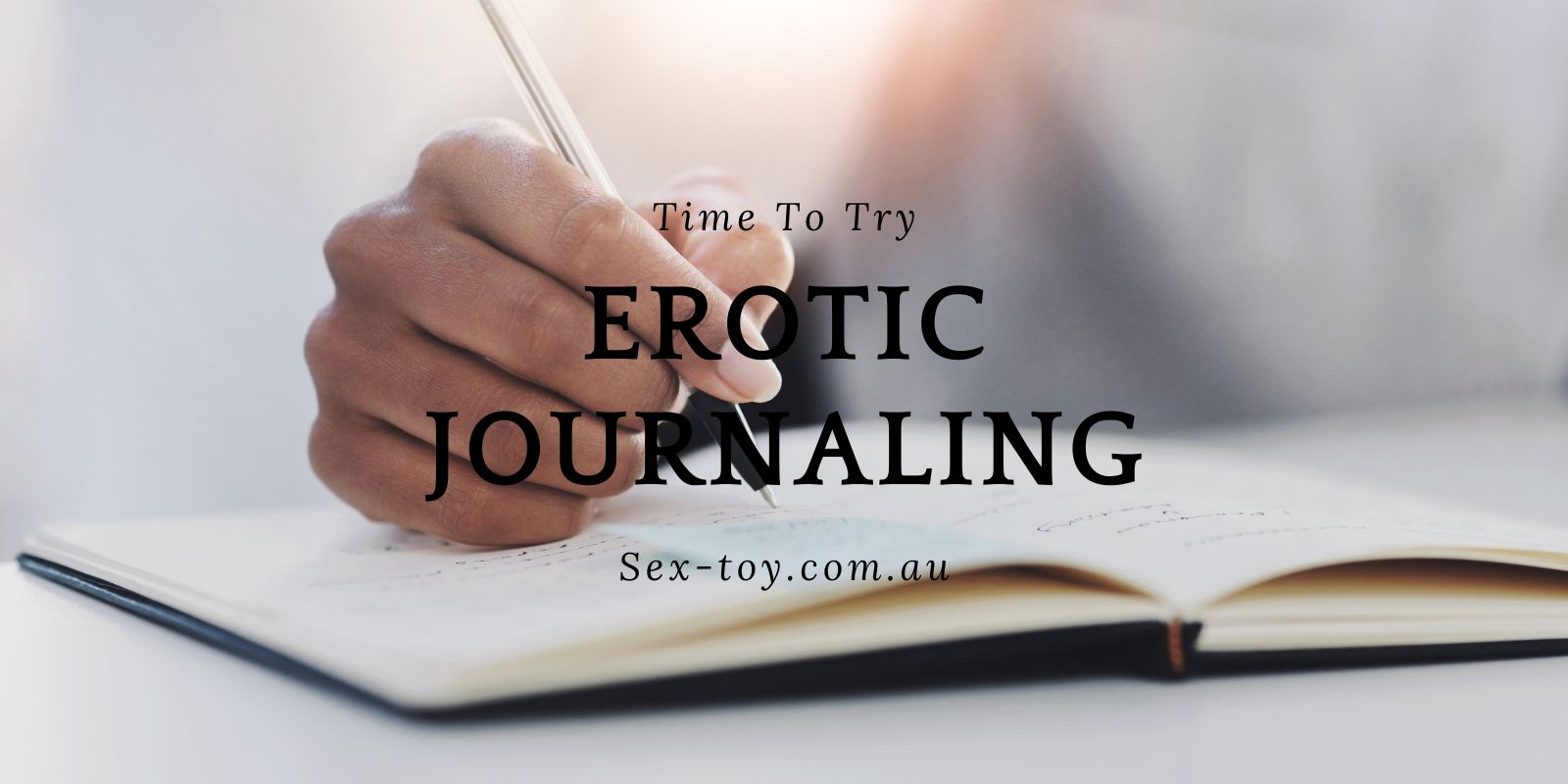Erotic Journaling: A Simple Guide to Self-Awareness and Desire
Writing down your experiences, fantasies, and reflections creates a safe space for honesty that can be hard to achieve in conversation alone. Erotic journaling is a private way to understand your own sexual identity, desires, and boundaries. It’s not about being perfect on the page — it’s about being real with yourself.
As a wellness and yoga enthusiast, I’ve seen how self-reflection practices like erotic journaling can reduce anxiety in the bedroom and open the door to more satisfying intimacy. With the right mindset, a pen, and a little time, you can create a record that helps you grow in self-awareness and pleasure.
Table of Contents
- What Is Erotic Journaling?
- Why Try Erotic Journaling?
- Getting Started: Tools, Privacy, and Boundaries
- Your First Entry: A Simple Step-by-Step
- Prompts and Exercises
- Sharing With a Partner (or Not)
- Working Through Shame and Blocks
- Exploring Fantasies Safely
- Key Takeaways
- FAQ
What Is Erotic Journaling?
Erotic journaling is the practice of writing about your intimate experiences, fantasies, and feelings in a safe and private way. Unlike a standard diary, it focuses on sexuality and desire, helping you explore sides of yourself that might otherwise go unspoken. According to therapists who use journaling in practice, writing openly about sex can help people release shame, find clarity, and better understand what they want.
Some people use erotic journaling to process past experiences, while others use it to record fantasies or chart changes in their libido over time. It’s not about creating polished writing. Instead, the purpose is self-expression, honesty, and freedom. By getting thoughts out on paper, you create a mirror of your inner world that can support growth, healing, and sexual confidence.
Why Try Erotic Journaling?
There are many reasons people turn to erotic journaling. For some, it’s about curiosity and discovering new sides of their sexuality. For others, it’s about overcoming blocks such as sexual shame or performance anxiety. Writing creates space to reflect without pressure or judgment, which can be especially powerful when talking feels too vulnerable.
Research on expressive writing shows that journaling can improve emotional well-being and lower stress. Applied to sex, this practice may lead to better self-awareness, stronger communication with partners, and more satisfying intimacy. Whether you want to explore kinks, reflect on relationships, or simply connect with your body, erotic journaling can be a useful tool for personal growth. For more insight, Psychology Today highlights how writing about sexuality helps people understand identity and desire.
Getting Started with Erotic Journaling
Beginning an erotic journaling practice doesn’t need to feel overwhelming. Start by creating a space where you feel safe and uninterrupted. Many people choose a paper notebook for its privacy, while others prefer a password-protected digital journal. The important part is that it feels secure, so you can write without holding back.
Try writing a little each day or set aside a weekly session. It doesn’t have to be long — even a few sentences can help you capture feelings or fantasies in the moment. Some writers also pair their practice with relaxation techniques such as meditation or tantric breathing exercises to settle into a more open mindset.
- Set a timer for 10–15 minutes so you don’t feel pressured to write endlessly.
- Keep your journal somewhere private to encourage full honesty.
- Experiment with writing at different times of day to see when you feel most open.
- Don’t censor yourself — raw and unfiltered thoughts often hold the most insight.
Your First Erotic Journal Entry
Starting your first entry is often the hardest part, but it helps to keep things simple. Focus on writing honestly rather than worrying about style or grammar. You might describe a recent sexual experience, a fantasy that excites you, or even your feelings about a current relationship dynamic. The key phrase to remember is that erotic journaling is about you, not anyone else’s expectations.
Some people find it helpful to use prompts, like “What turns me on right now?” or “What memory always makes me feel aroused?” Others begin with free writing, letting words flow without stopping. Over time, these pages can reveal patterns, desires, and insights you may not have noticed before. Think of your journal as a private space to explore the deepest parts of your erotic self — without censorship.
Prompts and Exercises
Erotic journaling works best when the page invites you in. Start simple: write what you feel in your body, what you want more of, and what you’re unsure about. The aim isn’t perfect prose—it’s honest notes you can return to later.
Use short prompts to lower the pressure. A few lines a day can capture desire, mood, and patterns that might be hard to say out loud. Over time, these entries help you track triggers, boundaries, and what brings you closer to pleasure.
Below are prompt ideas to keep your practice fresh. Pick one and write for 10 minutes without stopping. Let erotic journaling show you what’s already there.
- “Right now, my body feels…” (name sensations from head to toe)
- “I feel most turned on when…” (time of day, actions, tone, context)
- “A fantasy I return to is…” (why it sticks; what it gives you)
- “Something I want to try but haven’t yet is…” (name the first tiny step)
- “What I need more of in bed is…” (pace, words, aftercare, privacy)
- “A memory I still think about is…” (describe sights, sounds, touch)
- “What shuts me down is…” (how I’d like a partner to respond instead)
- Rose/Thorn/Seed: one win, one challenge, one small next step
- “If my body could speak, it would ask for…”
- “What I don’t want is…” (non-negotiables and soft limits)
- “I felt proud of myself when…” (self-compassion and progress)
- “A script for myself tonight…” (three lines I want to hear)
Sharing With a Partner (or Not)
Deciding whether to share entries is personal. Some people keep erotic journaling private to protect honesty; others read select parts with a partner to spark better talks and clearer requests. You can also share summaries instead of full pages—“here are three things that worked for me last week.”
Good sharing follows consent and timing. Agree on what’s okay to read, set a time limit, and debrief afterwards. If either of you feels exposed, pause. You can always come back to it later with boundaries that feel safer, like reading a single paragraph or using bullet points of key takeaways.
Working Through Shame and Blocks
For many people, the hardest part of erotic journaling is not what to write but allowing themselves to write it. Shame, embarrassment, or fear of judgment often hold us back from exploring sexual thoughts on paper. These feelings are common, but they don’t have to stop you. The act of journaling itself can help dismantle these blocks by giving you a private, safe place to name them.
As a yoga instructor, I’ve watched students bring journaling into their wellness routines. Adding an erotic focus works the same way — it grounds you, clears mental blocks, and helps you approach intimacy with more balance.
Start small. You don’t need to record every fantasy or past experience right away. Even jotting down a few words about how you feel in the moment can loosen shame’s grip. Over time, patterns become clear, and you may notice how much of your hesitation comes from outside voices rather than your own. By confronting this, erotic journaling becomes a way to reclaim sexual expression on your terms.
Exploring Fantasies Safely
Erotic journaling gives the chance to experiment with fantasies without real-world risks. Writing lets you play with scenarios that may not be possible or even desirable in practice. It’s a private playground for curiosity, giving you space to explore what arouses you, what doesn’t, and what boundaries you want to respect.
Not all fantasies need to become reality, but recording them helps you better understand your desires. Some people even find that rereading old entries allows them to see how their interests shift over time. If you do want to act on something you’ve written, journaling gives you a chance to process it first, so you can approach the experience with clarity and safety.
Exploring Fantasies Safely
One of the most exciting parts of erotic journaling is the chance to experiment with fantasies without real-world risks. Writing lets you play with scenarios that may not be possible or even desirable in practice. It’s a private playground for curiosity, giving you space to explore what arouses you, what doesn’t, and what boundaries you want to respect.
Not all fantasies need to become reality, but recording them helps you better understand your desires. Some people even find that rereading old entries allows them to see how their interests shift over time. If you do want to act on something you’ve written, journaling gives you a chance to process it first, so you can approach the experience with clarity and safety.
- Keep fantasies in writing separate from your real-life choices until you feel comfortable.
- If sharing with a partner, discuss boundaries openly before exploring further.
- Use journaling as a safe place to test what excites you without outside pressure.
- Revisit old entries to see how your interests evolve over time.
- Remember that not all fantasies are meant to be acted on, and that’s okay.

Key Takeaways
- Erotic journaling is a safe, private way to explore sexual thoughts and fantasies.
- It can help reduce shame, increase self-awareness, and improve intimacy with partners.
- Starting simple — with a notebook, privacy, and openness — is more important than perfection.
- Fantasies written down don’t need to be acted on; writing itself is a powerful tool.
- Regular practice helps turn journaling into a supportive habit for sexual wellbeing.
FAQ
Do I need to be a good writer to start erotic journaling?
No. Erotic journaling is about honesty, not grammar or style. Write however feels natural to you — lists, paragraphs, even doodles are fine.
Should I worry about someone reading my journal?
Privacy matters. Use a notebook you can store securely or a digital app with password protection. This keeps your exploration stress-free.
Can erotic journaling improve my sex life with a partner?
Yes. Journaling can clarify your desires, making it easier to share them. Some couples even exchange selected entries to deepen intimacy.
What if I feel ashamed of what I write?
Shame is common. Remember your journal is private, and fantasies are not obligations. Over time, writing can actually help reduce those feelings.
How often should I write?
There’s no strict rule. Some people write daily, others once a week. Consistency matters more than frequency, so choose a rhythm that fits your life.
Cassandra Smith is a yoga instructor sharing tips on wellness, mental health, and intimacy—focusing on self-awareness, balance, and daily mind-body care.


Leave a Reply